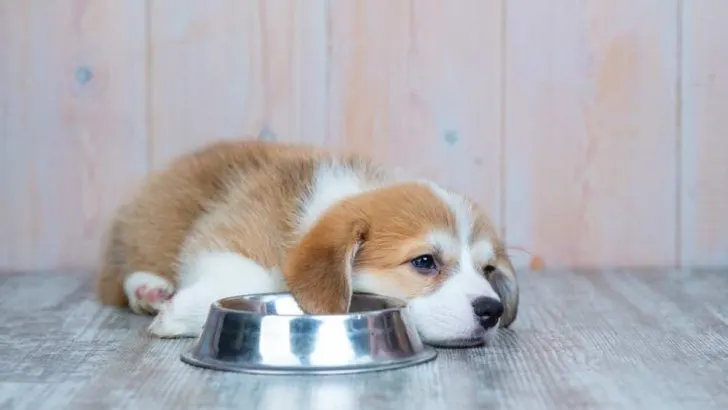Having a picky eater around the house is quite an annoying thing. They have a picky eater who can’t talk – even more so. Any parent who had to deal with this problem will jump right up and give you their tips and tricks. But we’re not talking about kids and toddlers here; we’re talking about Corgis!
So how should you deal with this? And more importantly, are Corgis picky eaters? Well, let’s find out!
Basically, there’s a very low chance of your dog being born a picky eater. Just like humans, any sort of behavior depends on the parent. If you teach your dog to be aggressive or jealous, you shouldn’t be surprised when you see him/her acting this way.
But you’d be surprised at the number of things your puppy will pick up just from your behavior around the house. Everything you do matters, they’re like little sponges, and they’re learning anything they can from you.
The thing is, they’re not learning random life skills; they are figuring out how to get what they want!
We know it sounds bad, but it’s simple. Dogs have the urge to survive, and food means survival. Sure, if you feed a poor dog on the street, he won’t complain no matter what you gave it. But if dogs figure out that a particular behavior will get them tastier meals – they’ll stick to it!
We’re getting ahead of ourselves; we’ll explain everything step by step. Let’s get this thing started.
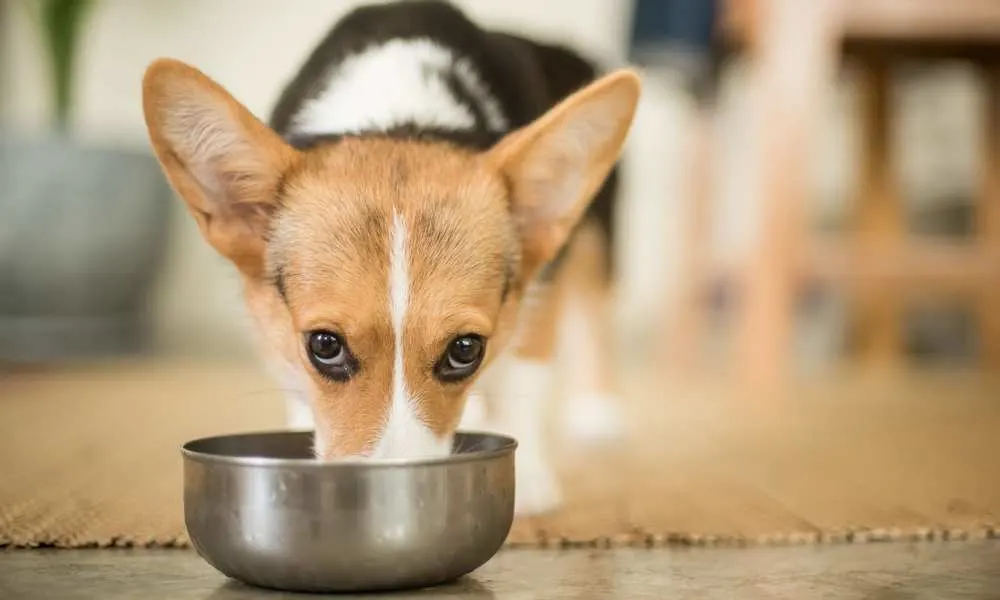
Are Corgis Picky Eaters?
So are Corgis Picky? You may have figured out that there’s more to it than a yes or no. Dogs can become picky through time if you allow them to do so. But for the sake of it, we’ll give a straight answer. No, Corgis as a breed are not known to be picky eaters.
And now, let’s get down to it; if your dog became picky, you’re probably wondering what happened and how you can reverse this.
Well, there are a couple of ways that this could happen. The main problem is that once your Corgi figures out how to get you to do something, it will get harder and harder to get him/her to stop!
You probably won’t be able to pinpoint the moment when it all started. But you probably gave in to their oldest trick – not eating.
Veteran dog owners already know this trick. You give your dog their meal and they just sort of look at it confused. If you never encountered this, it may seem as if there’s something wrong. Maybe they’re sick? How serious is it? These worries are not entirely out of place; let’s get that straight. But we’ll get to those possibilities in a bit.
The most common next step is to make the food tastier. It makes sense, right? Your puppy has to eat, and if it doesn’t happen, you should do whatever you can? Well, yes. But people usually do the wrong thing.
We make it seem like your dog is plotting against you, and even though it may seem like that’s the case – it’s not. Them doing this makes sense. After all, they can’t comprehend that those sugary treats don’t pass as a meal. But sugar is quite tasty and addictive – so we can’t really blame them, can we?
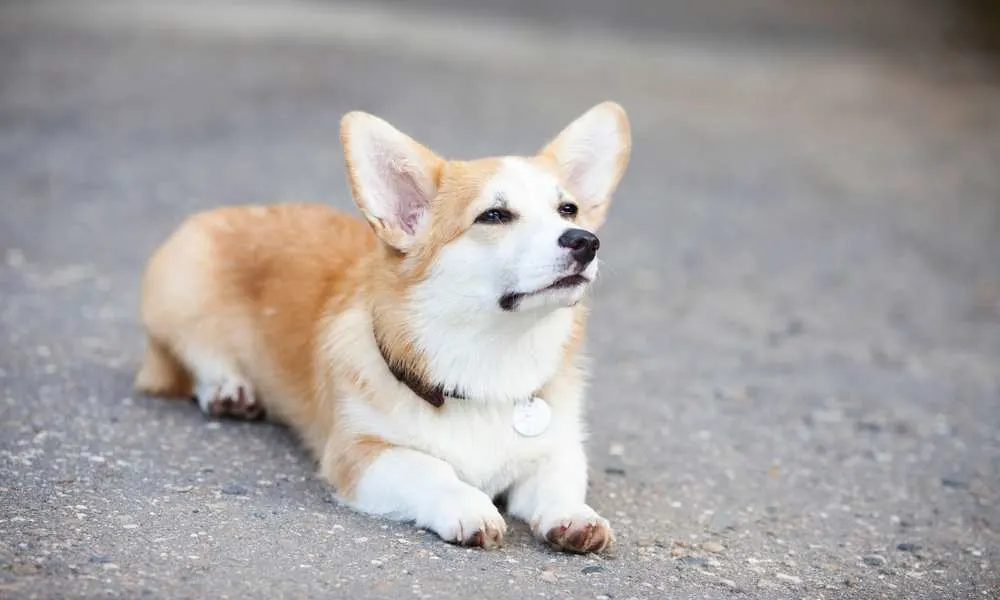
The Simple Solution
The simplest way of dealing with this problem is taking the food away. We know it sounds mean, but hear us out.
First, you need to do some investigating. Is there something wrong with your Corgi? Well, if your puppy’s eating treats and pretty much anything that’s not dog food – it’s not a health issue.
Quality food is of utmost importance, but they probably won’t taste the difference. It would help if you still tried to find the highest quality dog food you can. Ask your vet to recommend a brand, the pet shop workers can help, but your vet knows your dog better than anyone.
So if there’s nothing wrong with your dog and the food you’re giving it is from a quality brand – it’s safe to conclude that you got a picky Corgi on your hands.
Once your Corgi starts rejecting its food, it’s time to develop a certain level of discipline. What you want to do is take the food away after a certain time.
Keep your meals strict and available at certain times during the day. Keep them available for about fifteen minutes, no more than that. The point of this is to teach your dog that the food won’t be there all day.
It’s okay to feel a bit worried about your dog going hungry. But don’t worry, they know better than to go hungry. Chances are they’ll be back munching their food by the end of the day.
Don’t worry if you’re used to giving your Corgi puppy meals three or more times a day. Grown dogs sometimes eat only once a day.
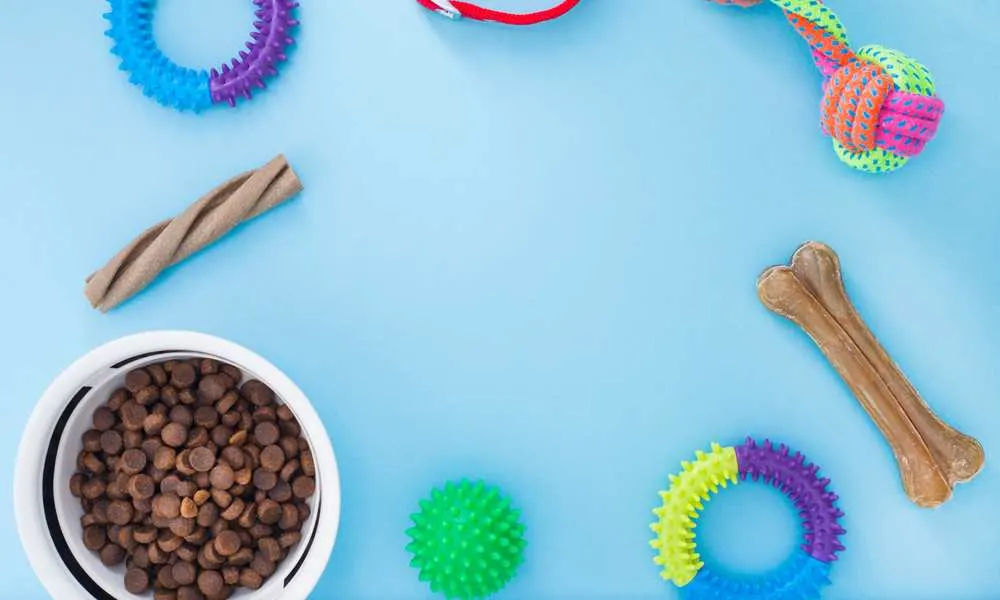
Food Changes
Changing the type of food you give your dog could also be the reason why they become picky. Especially if you switched, say, from dry don’t food to raw or cooked meat and vegetables.
Your dog will naturally like the cooked stiff better. Which is fine, and it’s a perfectly acceptable diet plan. But sometimes, people figure out that the meal planning crucial for the raw/cooked diet is a bit more complicated than they thought.
Dry and/or packed foods already have all the nutrients that your dog needs. And it takes quite a bit of effort to get all those nutrients in a cooked meal.
So you switch back to dry foods. But naturally, your dog isn’t very keen on the idea. Your puppy will just kind of wait for you to give it tasty food in this situation.
Again, the worst thing you can do is add something to the meal. Please don’t put in treats or anything else that will make them eat.
It might seem cruel, but it’s what’s best for your dog. The food has everything he needs nutrition-wise. But don’t get us wrong, you can put anything you want in your Corgis food, as long as it’s healthy.
We very much advise against packing the meals full of sugars or fats. If your dog becomes overweight, you’ll have to limit its food just like this. But it’s going to be much more difficult in that case.
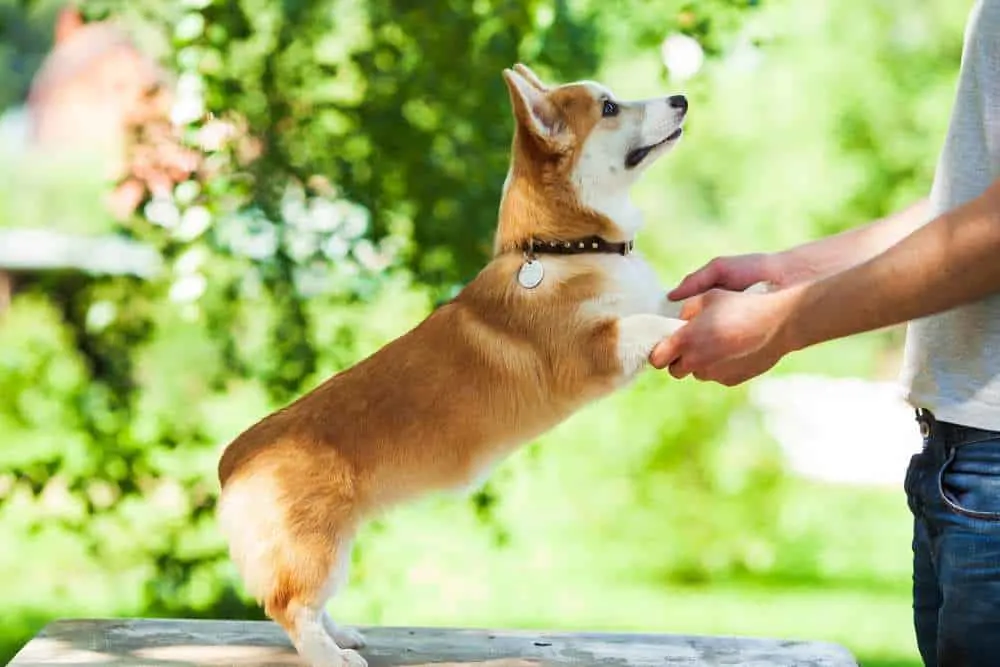
Who’s Training Who?
You might have noticed that all this sounds like our dogs managed to figure out how to manipulate us. The little rascals tricked us!
But what they’re doing is not very complicated. They’re actually just going with the flow, and we’re the ones doing the damage. Let us explain:
See, when your dog doesn’t want to eat the available meal, people tend to try and make that said meal more desirable. But by doing this, you make your dog connect the wrong dots. Waiting now means more food. And once the dots are connected, they’ll wait for however long it takes.
This is what people are talking about when they say that your dog trained you well.
The thing is, this is actually training your dog works. The behavior that gets rewarded – stays. Rewarding good behavior is preferable, but all your dog knows is that it’s been awarded.
After this, it’s pretty much a game of who can last longer. Mind you; your dog is ready for the long run.
Learn More: Why Do Corgis Get Fat? Are Corgis Naturally Fat?
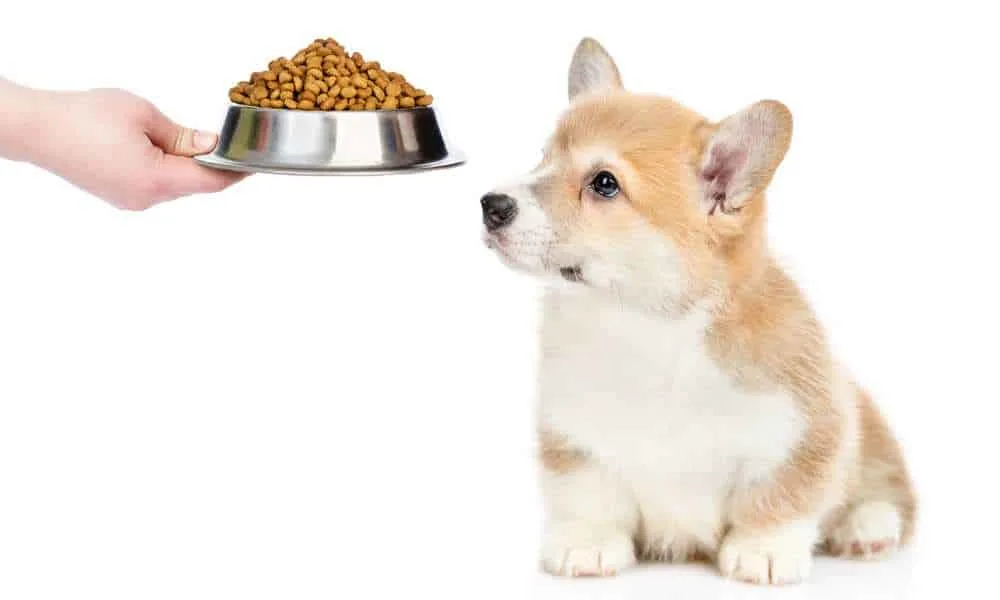
Health Problems
We mentioned a couple of times that there could be something wrong. If your dog is in pain or is feeling sick, he won’t have an appetite; the lack of which is one of the first symptoms in many conditions.
So how can you know if you’re dealing with a medical problem?
Simple – if your dog doesn’t want to eat anything, there’s something wrong. Corgis are, after all, dogs. If a dog doesn’t want a treat, there’s something wrong.
But hey, we get that not everybody’s a veterinarian. So we made a simple little guide that will help you spot symptoms of possible problems.
Remember, if your dog isn’t eating and has lost its appetite completely, call your vet immediately!

An Illness
While we can’t narrow this down to just one condition, it’s important to note that your dog could be sick. Many conditions can cause your dog to low appetite; some are severe while others are mild.
Contact your vet as soon as possible so they can further investigate the situation. Even if not serious, catching an illness on time makes things much easier.
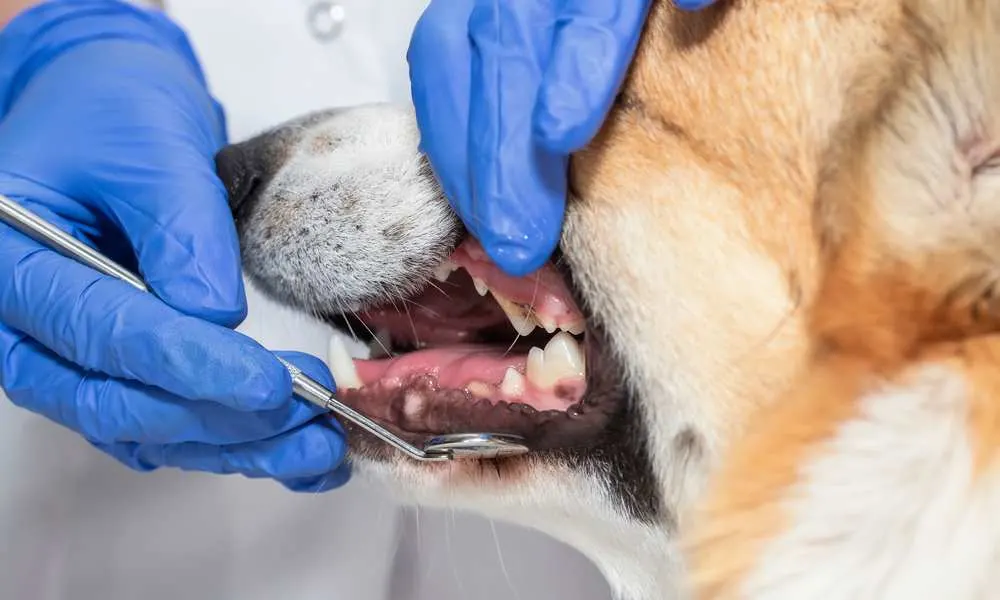
Mouth Problems
If there are no other current symptoms, your dog could be in pain that is located in its mouth. A loose or broken tooth, something lodged in the throat, or a mouth tumor could all be culprits.
Check the mouth to your best abilities, but call your vet as soon as possible. Regular maintenance of your Corgis mouth hygiene is incredibly important and could nip many of these problems in the bud.

It Could Be Psychological
Last but not least, the problem could actually be psychological, not physical. There are many reasons for your dog to feel overwhelmed and scared, and both of those emotions can cause your Corgi to lose appetite.
The reason is actually anxiousness, but there are a lot of things that cause it. Your dog could be anxious because of new surroundings. There could be a new person in the house, etc. As far as those kinds of things go, any sort of big change can impact your dog’s emotional state.
Being careful when implementing any big life change is crucial. Dogs can sometimes find a relocation very hard to deal with. If you notice that your dog isn’t himself, not eating could be a good clue!
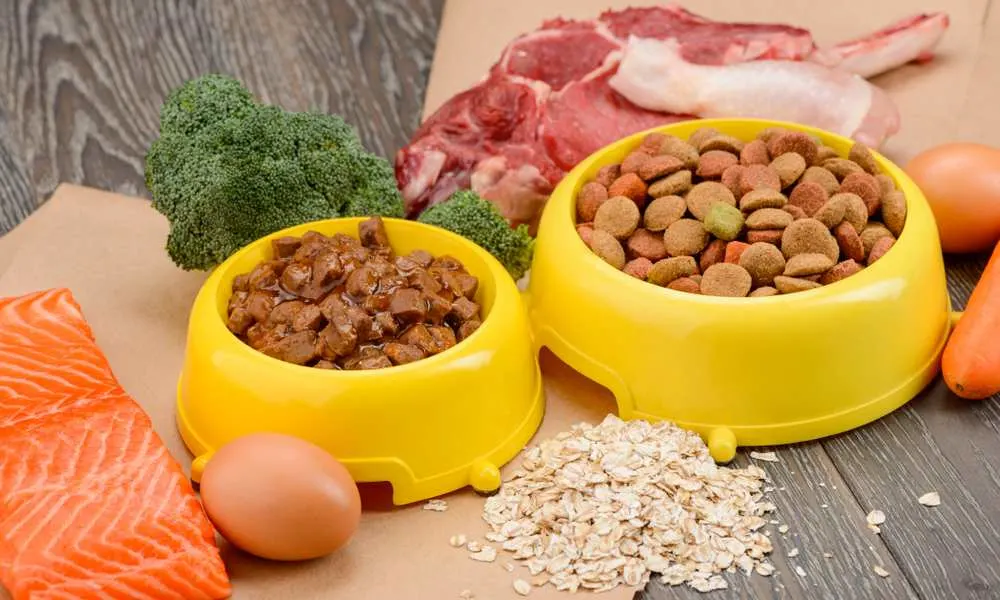
Picking The Food
People frequently have opinions on, say, what food is best for their dog. And it’s their right; after all, they are that dog’s caretakers. The food they choose is the one the dog will be eating for years to come. Brand loyalty is common and is something we’re all for!
But picking the food is not as simple as looking at the prices or how good looking the packaging is. Your dog’s health and physical development depend on its nutrition. By picking low-quality food means that your dog won’t get all the nutrients he needs.
Sure, food is food. We’re not saying that it’s better to starve. But some dog-foods are known to save money by limiting what they put in said food. So how do you choose?
Well, the first thing we recommend is to ask your vet. They are professionals, and they know your dog better than anyone. They are also the ones who want the best for your puppy. Not to say that someone who works in a pet shop will sell you something bad, but the best research comes from you going to your vet.
Speaking of research, we recommend doing as much as you can! Knowing how to read the labels on the packaging makes hunting down the perfect food much easier.
Let’s take a quick look at what kind of foods you can expect to find:
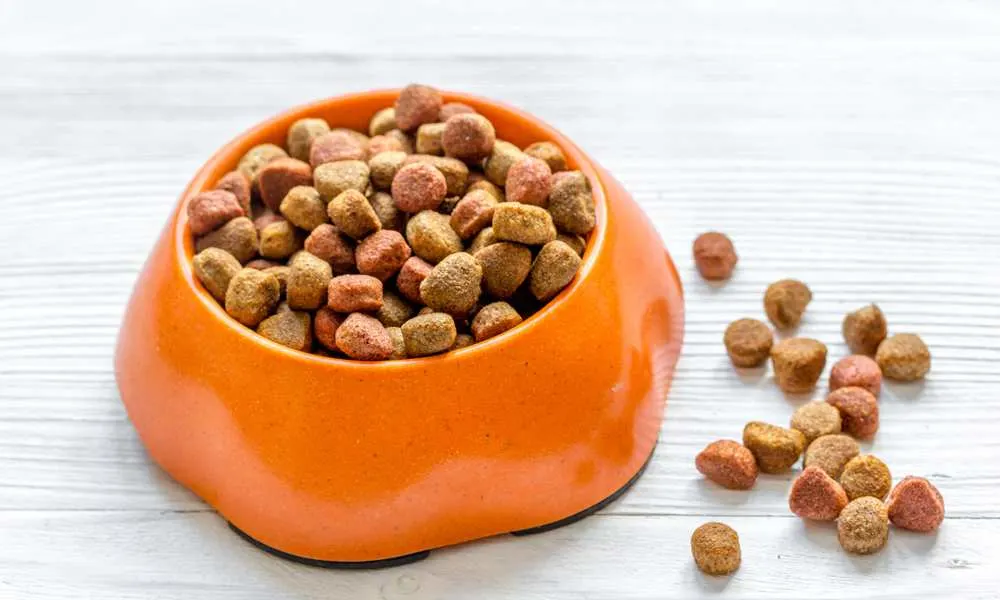
Dry Foods
This is by far the most popular kind of dog food. The reason for their popularity is the fact that manufacturers can pack them full of nutrients during production. This, plus the fact that they have a crazy long shelf life because of the involved thermal processing, makes them an excellent option.
This is usually the food that every dog starts out with. We say start out because people usually experiment with other types since it doesn’t seem appealing next to, say, wet or fresh foods. But dry food can be one of the healthiest options.
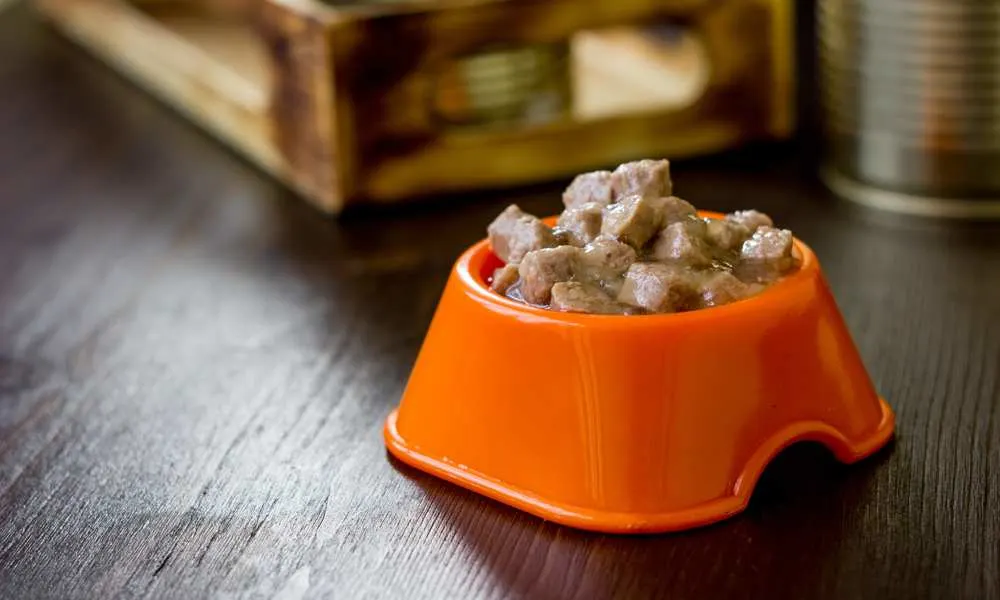
Wet Foods
Next on the list are wet foods. This is usually the next choice for people after they tried out the dry counterpart.
Wet dog food is actually quite similar to the dry one. The difference is in the gelatine that is added to bring up the moisture level and make the food more speaking.
Wet foods are the perfect balance of being packed full of nutrients and being tasty, minus the need for preparation that the raw or cooked foods have.
The only drawback is the limited shelflife, but some good planning easily solves this.
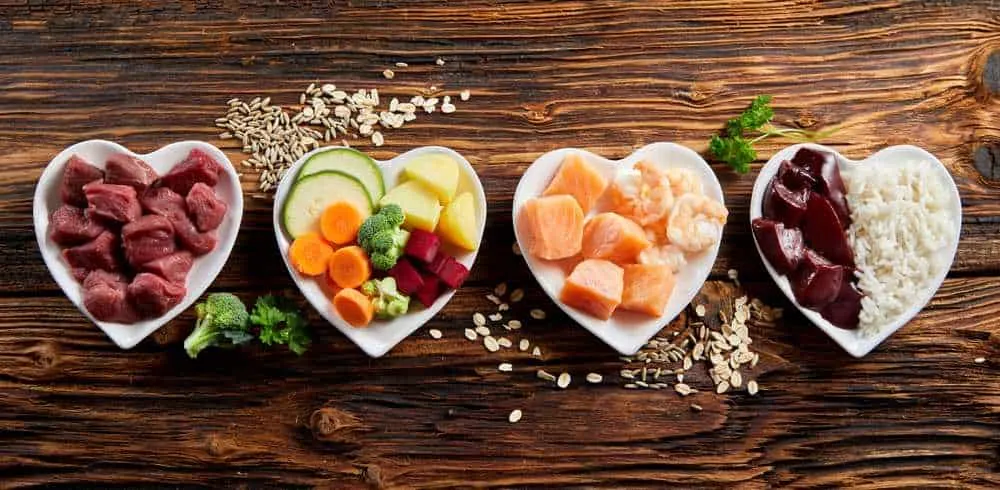
Raw Foods
Raw and cooked foods are pretty self-explanatory. We already mentioned them, so we’ll just give you a piece of advice.
If you plan on making your Corgis meals by yourself, do your nutritional research well. This type of diet is great if your dog is getting everything it needs, nutrition-wise.
Read More: How To Feed A Corgi?

Final Words
The point of this whole article is that picky eating is a behavioral problem. No specific breed is more likely to have picky eating as a predominant behavior. It is something that the dog learns to do.
So if they can learn it, they can unlearn it. It can be a nothing process, don’t get us wrong. But as long as you stay the course and stick by the tips that we mentioned here, your dog will be back to its normal self in no-time.
Just remember, positive reinforcement is not only the best way of teaching your dog something – it’s the only way. Never punish your dog for being a picky eater. Whatever your Corgi learned, it learned from you or your family members.
Give it your all, and stick to the course. It will all work out eventually. Sure your dog may seem like it’s the end of the world because it’s not getting the fold it wants, but it’s for its own good.
Watch yourselves, though; Corgis can be dramatic. They’ll let you know that they’re not happy, and they’ll do it loud and clear. But they are also a loving and caring breed. Don’t give up, and you’ll have a well-behaved and friendly little pup!

